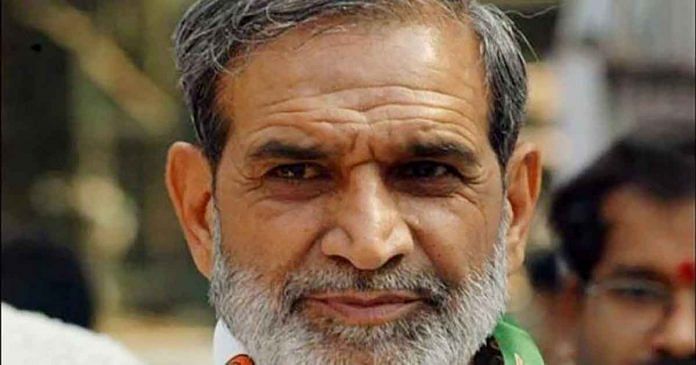Sajjan Kumar was a key player in Delhi politics before public outcry forced Congress to deny him a Lok Sabha ticket in 2009.
New Delhi: Sajjan Kumar, 73, the senior Congress leader sentenced to life for his role in the 1984 anti-Sikh riots, has been a key player in Delhi politics since the 1970s.
Kumar, an influential Jat leader, began his career as a councillor in 1977 before going on to serve as a Member of Parliament from Outer Delhi on three occasions since 1980.
He was convicted Monday in the killing of five members of a family in Raj Nagar in Delhi on 1 November 1984. At least 3,000 people were killed when mobs allegedly led by Congress leaders targeted Sikhs after the assassination of then Prime Minister Indira Gandhi by her Sikh bodyguards.
The anti-Sikh riots case began dogging his political career from the 2009 Lok Sabha elections, when the Congress, bowing to public pressure, withdrew the tickets it had handed to Kumar and Jagdish Tytler, another accused in the case.
Since 2009, Kumar has been sidelined by the Congress due to the case. The senior leadership felt that his “active presence” in the party and the functioning of the party could impact its poll prospects.
In 2013, however, the Congress fielded Kumar’s son from the South Delhi constituency of Sangam Vihar. He was defeated in the assembly elections.
The Congress continued to keep Kumar at an arm’s length even though in 2013 a lower court acquitted him in the case on grounds that the testimony of the eyewitness, Jagdish Kaur, who had lost her son, husband and three brothers in the riots, was inconsistent.
Following the acquittal, the CBI challenged the lower court’s order alleging that the mobs engaged in “a planned communal riot” and “religious cleansing”.
Kumar has now been sentenced to life imprisonment until his natural death. The conviction of five others — Mahendra Yadav, Captain Bhagmal, Girdhari Lal, Kishan Khokhar and Balwan Khokhar — was affirmed by the high court, along with the life sentences they were handed.
Also read: In Sajjan Kumar verdict, Delhi HC brings up ‘mass killings’ in Gujarat, Mumbai & UP
Charges framed against him
Kumar has been charged with entering into an agreement with his supporters along with the Delhi Police to commit rioting, murder and causing damage with intent to destroy houses.
He has also been accused of promoting enmity between different groups on grounds of religion, doing acts prejudicial to maintenance of harmony and injuring or defiling place of worship with intent to insult the religion of Sikh community.
He allegedly delivered provocative speeches to the mob gathered at Raj Nagar, Palam Colony, Delhi Cantonment on 1 and 2 November 1984 against the Sikh community.
Further, he has also been charged for having publicly made a statement asking members of the Jat community to not leave any Sikh or any other person who had given shelter to Sikhs alive, inciting the mob gathered there, by delivering provocative speeches.
What Nanavati Commission said
The case against Kumar and others was registered in 2005 after a recommendation by the Justice G.T. Nanavati Commission.
The report on the incident mentioned that many witnesses spoke of the involvement of Kumar, Balwan Khokar, Pratap Singh, Maha Singh and Mohinder Singh in the riots in areas such as Palam Colony, Tilak Vihar and Raj Nagar.
It was alleged that the mobs indulging in riots were led by Kumar and Balwan Khokhar and other Congress leaders.
“Police did not even record the complaints of the victims/witnesses against them. Instead, complaints of losses were recorded by the police,” the report said. “The commission is, therefore, inclined to take the view that there is credible material against Sajjan Kumar and Balwan Khokhar for recording a finding that he and Balwan Khokhar were probably involved as alleged by the witnesses.”
Also read: 4 commissions, 9 committees & 2 SITs – the long road to justice for 1984 Sikh killings



